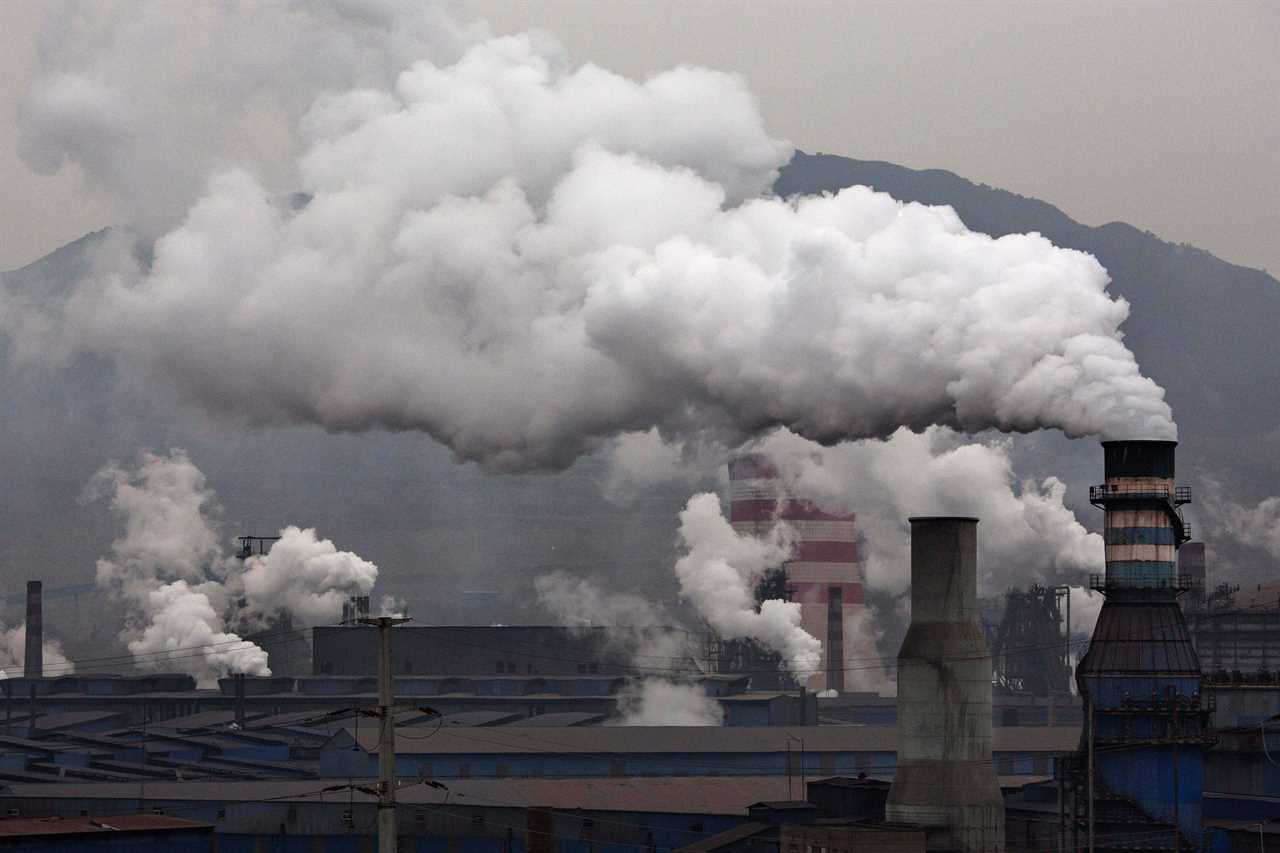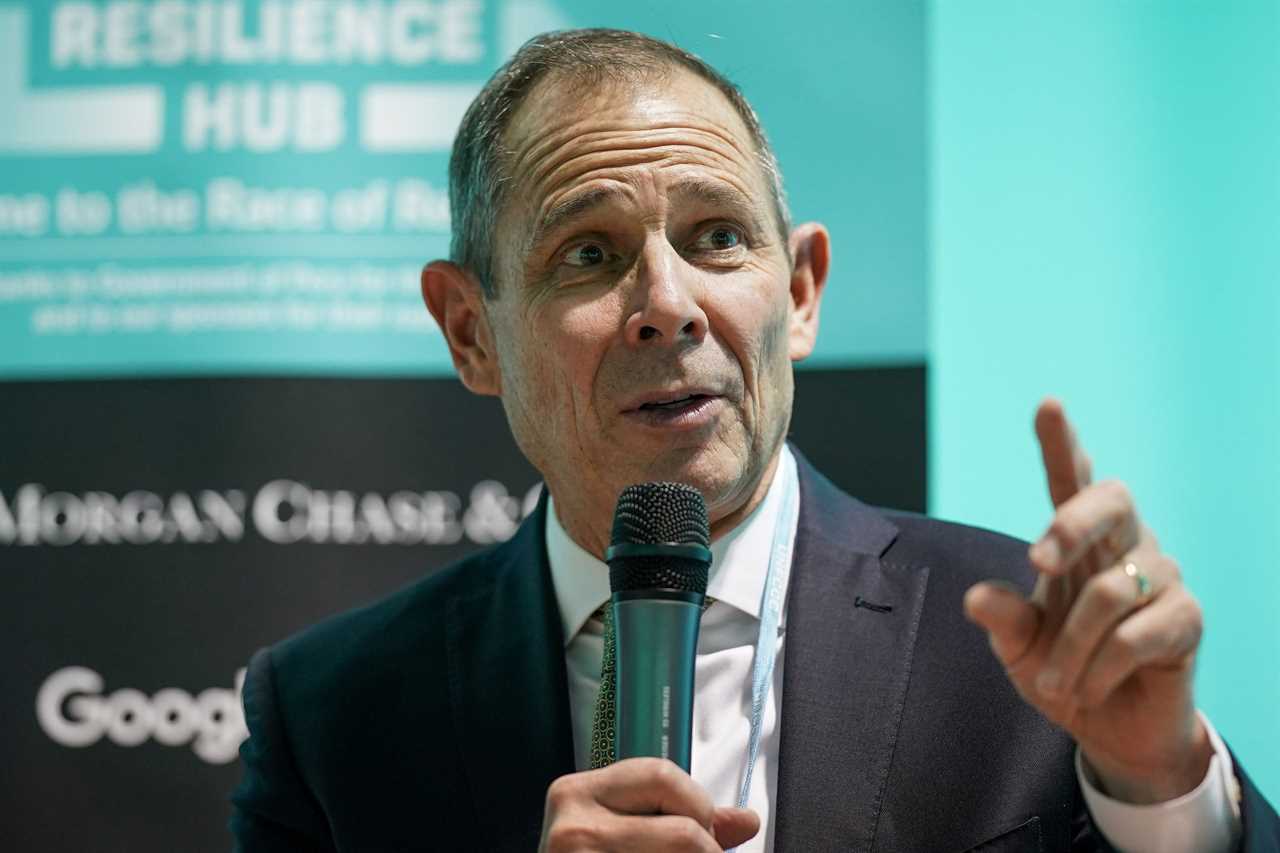
With the armada of private jets departed from Glasgow after the COP26 climate change conference, the world is left to reflect on yet another round of nonbinding commitments, watered-down resolutions and promises to revisit the problem next year. The science on climate change may be clearer than ever, but so too is the failure of the world’s current strategy for countering it: an internationalist approach, based on mutual cooperation with no real enforcement mechanism, that assumes altruistic collective action is possible between governments with different capacities and competing priorities. This is true at the best of times, but especially during a multipolar era in which the world’s largest emitters are direct competitors in almost every other policy arena.
Thus far, Republicans have had little to bring to this debate, and it’s not surprising: Conservatives in the United States have publicly questioned climate science to an extent that long ago surpassed the pretense of healthy skepticism. Thus, they surrendered the initiative almost entirely to the left, which has generally advocated government-centric solutions at home and placed too much trust in international institutions abroad. Republicans have yet to articulate an approach to climate foreign policy beyond downplaying the problem, bluntly opposing the Paris Agreement and angrily pointing the finger at China.
But a growing number of conservative leaders now accept the reality of climate change and are thinking about realistic proposals to mitigate it. In June, Rep. John Curtis launched the Conservative Climate Caucus, which is backed by more than a third of the Republican conference and sent a delegation to COP26. This may be spurred in part by a growing generational divide among Republican voters: A recent Pew poll suggests that Millennial and Gen Z conservatives are more concerned than their baby boomer counterparts about climate change, back the shift to cleaner energy and even want the federal government to do more. Indeed, it was a youth organization, the American Conservation Coalition, that put forward the conservative alternative to the Green New Deal.

By maneuvering past both their own history of denialism and public fatigue with the left’s alarmism and naivete, conservatives can put together a realistic, and even winning, global climate agenda — especially as they eye control of Congress next year and GOP presidential candidates test the waters for 2024. A Republican global climate agenda should reflect traditional conservative support for a robust foreign policy that prioritizes U.S. interests and values. This would entail, above all, publicly holding China, Russia and other egregious polluters to account — and using America’s economic clout to impose real costs when necessary. More broadly, a GOP approach would jettison the focus on climate as a standalone issue in international diplomacy and instead incorporate it into related efforts on trade, international investment, human rights and security. This strategy would be consistent with Republicans’ more hawkish foreign policy instincts and — more importantly — provide a realistic alternative to the quixotic and increasingly discredited liberal paradigm for global climate action.
Former President Donald Trump’s approach to climate largely began and ended with withdrawal from the Paris Agreement. In fact, the United States looks stronger for being at the table alongside allies and partners, especially when its main rivals for global influence can’t be bothered to show up. But instead of acquiescing in the charade of nonbinding agreements, a Republican administration would use international fora to publicly hold China, Russia and other polluters’ feet to the fire, insisting on legally binding, transparent and enforceable commitments to reduce emissions — then walking away if those fail to materialize.
A conservative approach would make much stronger use of sticks as well as carrots to deter and punish the worst climate abusers. As overseer of the world’s reserve currency, the United States possesses a uniquely devastating ability to incentivize climate action through sanctions and other forms of economic statecraft. One straightforward way to do this would be expanding the Global Magnitsky program, which targets human rights abuse and corruption, to include instances of serious environmental harm, such as those responsible for China’s dirtiest overseas coal plants. This approach would have bipartisan appeal; in fact, Sen. Ed Markey has introduced a bill to this effect and several Republican offices have expressed interest. Even more ambitious would be a dedicated “green sanctions” program, authorizing sanctions against specific industries or activities instead of just targeting individual people and companies.
U.S. law enforcement has unique jurisdictional reach to extradite and hold accountable the world’s worst criminals, from druglords to money launderers, but this has yet to be tapped for polluters. A future Republican administration could even supercharge President Joe Biden’s laudable commitment to combating kleptocracy with Trump-style “maximum pressure” enforcement campaigns against regimes engaged in the most environmentally harmful forms of illicit activity. Transnational crime and corruption are major drivers of illegal deforestation and other forms of environmental degradation that fuel climate change, and the membership overlap between the GOP climate caucus and new counter-kleptocracy caucus is no coincidence.
If a future GOP administration and Congress really wanted to go large on policing climate abuse, they could move beyond green sanctions and targeting corruption to directly criminalize “ecocide,” the most egregious forms of environmental abuse. This might include, for example, those responsible for the Maduro and Ortega regimes’ illegal deforestation and strip mining.
This is, of course, a confrontational path that Democratic administrations, anxious to preserve any possibility for cooperation with China and other adversaries, have yet to tread in the context of climate change. And it is true that applied bluntly, such measures can be counter-productive. Despite India’s poor record on climate, for example, it should not be cut off from the global financial system. Yet the use of more targeted measures against individuals, companies and other sub-state entities is surely justified to deter and punish the world’s worst polluters. As Edoardo Saravalle points out, “If a program as internationally unpopular as the Iran sanctions can reshape international economic flows, imagine the impact that sanctions for climate change could have.”
In tandem with taking a tougher line on climate offenders, future Republican administrations should enhance meaningful climate cooperation with allies and partners. This includes striking new trade deals and development assistance that incorporate climate concerns, especially in countries dissatisfied with the environmental damage and corruption wrought by China’s Belt and Road Initiative.
To be sure, the Biden administration is trying to adopt this exact approach, evidenced by a recent deal with the EU on restricting “dirty steel” from China. But a Republican administration (at least not one run by Trump) would focus less on tariffs and other restrictive measures and more on using free trade and investment to unlock green technology. Currently, the focus on regulating fossil fuels out of existence without viable alternatives threatens American jobs, generates higher energy bills and benefits China as it continues to burn coal with abandon. More aggressively reshoring the manufacturing of new green tech to the United States, and “ally-shoring” to deepen trade links with partners, will also ensure the economic benefits are shared by the American people and across the democratic world.
Of course, the success of climate policy abroad will depend on how credibly the U.S. works to reduce emissions at home. Here the United States is already on stronger ground than the alarmists would like to acknowledge, having achieved significant reductions in the past decade while China, India and other major powers’ emissions continue to skyrocket. A Republican administration and Congress could accelerate this with new support for climate-friendly innovation and technology, rolling out ambitious new hydropower and nuclear projects, and incentivizing natural solutions such as reforestation on federal and private lands.
Taken together, the pillars of this approach — accountability for polluting countries, helping allies invest in climate-friendly technology and continuing to foster a market-based approach to emissions at home — would integrate climate into the broader U.S. global agenda. This would be a more effective approach than treating climate as its own diplomatic track, as John Kerry appears to have been doing in the run-up to COP26.
One obvious obstacle for Republican lawmakers is that Trump may be re-elected or use his considerable influence to block a party reset on climate. Indeed, “America First” has taken hold in the party, and we are unlikely to see a complete return to the muscular but more benign internationalism championed by Republicans like John McCain. Realistically, the next Republican president will need to balance the party’s more nationalist impulses while engaging allies and partners in a more sophisticated way than Trump did — particularly to unite countries against a rising China. A coherent approach to climate change is an important part of this and is an area where “America First” might actually help inform a useful policy shift.
As Curtis of the Conservative Climate Caucus told POLITICO, “It's time for us to come forward with our ideas… we want a seat at the table.” Republican leaders have a opportunity to leapfrog from discredited denialism, skip the quixotic approach that was on display at COP26, and embrace a robust approach to U.S. climate leadership that certainly puts America First — but also delivers for the planet.
----------------------------------------
By: Nate Sibley
Title: Opinion | How the Next Republican President Can Restore U.S. Leadership on Climate Change
Sourced From: www.politico.com/news/magazine/2021/11/18/climate-change-republicans-foreign-policy-522824
Published Date: Thu, 18 Nov 2021 13:00:00 EST






